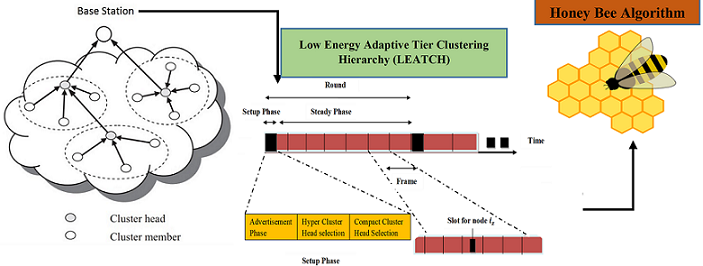
Optimized energy-efficient multi-hop routing algorithm for better coverage in mobile wireless sensor networks
Abstract
The Mobile Wireless Sensor Network (MWSN) comprises transceivers that collect information and transfer it to the access point through other hubs. Both mobile networks and access points can be portable and work apace with stable devices in the network, depending on the application requirements. Numerous studies have been undertaken to develop sensor nodes considering energy and mobility, with LEACH-based routing algorithms providing the best results. However, the Low Energy Adaptive Clustering Hierarchy-based energy-efficient navigation system best suits small-scale systems. Whenever the connection is huge, long-distance transmission between cluster members and the Base Station (BS) consumes much energy. Thus to overcome it, this research grants an innovative scheduling algorithm that adapts to sensor node transmission to deliver dependable and energy-efficient navigation named Optimized Energy Efficient Routing Algorithm for Better Coverage in Wireless Sensor Networks. Firstly, our research paper presents a unique method called Low Energy Adaptive Tier Clustering Hierarchy (LEATCH), which achieves a reasonable balance of latency and energy usage while addressing various covering concerns in MWSN. Moreover, a novel Honey Bee Algorithm is utilized to find the potential and hyper-cluster heads. As a result, based on power, latency, coverage, stability period, and scalability, the optimized LEATCH protocol outperforms other energy-efficient clustering protocols.
Keywords
Sensor Network; Base Station; Low Energy Adaptive Tier Clustering Hierarchy; Honey Bee Algorithm
 ISSN 2321-4635
ISSN 2321-4635